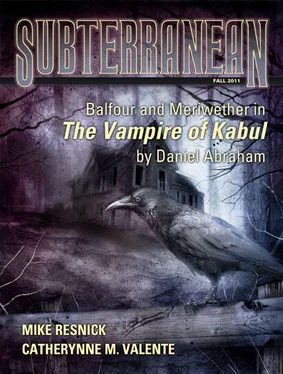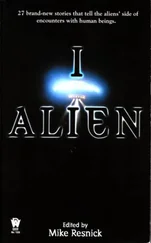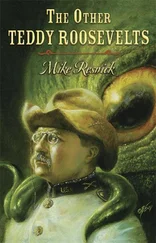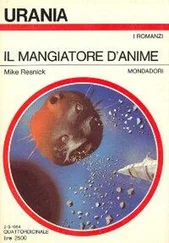Mike Resnick - Shaka II
Здесь есть возможность читать онлайн «Mike Resnick - Shaka II» весь текст электронной книги совершенно бесплатно (целиком полную версию без сокращений). В некоторых случаях можно слушать аудио, скачать через торрент в формате fb2 и присутствует краткое содержание. Год выпуска: 2011, Издательство: Subterranean Press, Жанр: Фантастика и фэнтези, на английском языке. Описание произведения, (предисловие) а так же отзывы посетителей доступны на портале библиотеки ЛибКат.
- Название:Shaka II
- Автор:
- Издательство:Subterranean Press
- Жанр:
- Год:2011
- ISBN:нет данных
- Рейтинг книги:3 / 5. Голосов: 1
-
Избранное:Добавить в избранное
- Отзывы:
-
Ваша оценка:
- 60
- 1
- 2
- 3
- 4
- 5
Shaka II: краткое содержание, описание и аннотация
Предлагаем к чтению аннотацию, описание, краткое содержание или предисловие (зависит от того, что написал сам автор книги «Shaka II»). Если вы не нашли необходимую информацию о книге — напишите в комментариях, мы постараемся отыскать её.
Shaka II — читать онлайн бесплатно полную книгу (весь текст) целиком
Ниже представлен текст книги, разбитый по страницам. Система сохранения места последней прочитанной страницы, позволяет с удобством читать онлайн бесплатно книгу «Shaka II», без необходимости каждый раз заново искать на чём Вы остановились. Поставьте закладку, и сможете в любой момент перейти на страницу, на которой закончили чтение.
Интервал:
Закладка:
They were about half an hour into the debate when it happened. Three gunmen—one armed with a laser gun, two with projectile pistols—burst onto the floor of the stadium. They must have been hiding in the laundry facilities in the back of the visiting teams’ clubhouse, and had killed half a dozen security men along the way. They raced onto the field where one of the network anchors was acting as moderator for the debate. One of them started yelling something—the sound system couldn’t pick it up—and then they began firing their weapons. The guards were taken by surprise, and soon lay dead on the stadium floor.
One man fired a shot at Robert, who threw himself to the ground. The bullet hit a woman in the stands. She screamed and pitched forward, dead.
The President was crouching down behind his podium, and the man with the laser pistol was burning his way through it. Two shots tore into the other candidate, blood spurted out of his throat, and he collapsed, writhing and twisting frantically for a few seconds, then lay absolutely still in an ever-increasing pool of his own blood.
And then, just as everyone thought there was more slaughter to come, Robert got to his feet and raced to the man with the laser, hurling himself against the man’s back and sending him sprawling. Somehow he got his hand on the gun as the two went down in a heap and he came up firing. The first blast of deadly light turned one of the pistols to molten metal, the second went right between the third man’s eyes. The man whose gun had melted threw himself at Robert, which was all but suicidal: I don’t think Robert had ever lost a fight since he began building his body up after that one experience as a boy. He reached out a long, powerful arm, grabbed the man by the throat, lifted him off the ground until the wild thrashing became feeble twitching, and then literally threw him away.
The first gunman, the one with the laser whom he had disarmed, got up, took one look into Robert’s eyes, didn’t like what he saw, spotted some police running onto the field, and raced to them, his arms in the air, screaming that he surrendered.
Robert walked over to where the President cowered behind the podium, gently lifted him to his feet, and kept a steadying arm around him until the medics arrived about a minute later.
It was not only an act of extreme heroism, but it had been seen by eighty million people, two-thirds of them eligible to vote in the upcoming election. That night Lloyds lowered his odds to four-to-one, and within a week, when matched against the President, it was six-to-five pick ‘em. By election day Robert was an odds-on favorite, and he won the way a heavy favorite should.
The morning after the election he issued executive pardons to the two surviving would-be assassins. There was some brief outrage in the press, but he pointed out that if he, who had literally risked his life to prevent them from killing the President, was willing to forgive them, what right did anyone else have to hold a grudge?
“That was a remarkable act of generosity,” I said when he and I were briefly alone in his office. I had been appointed his Chief of Staff, but it was entirely for show; he saw who he wanted, when he wanted.
“You have no idea,” he replied with an unfathomable smile.
“I think the people will love you all the more for it: a hero—but a hero with compassion.”
“The thought had crossed my mind,” he said dryly.
“I can’t get over how serendipitous it was,” I continued. “I think you were actually winning the debate, and it probably wouldn’t have won you ten extra votes. But those crazed killers showed up and suddenly you’re the biggest hero we’ve had since…well, Nelson Mandela was a Xhosa, so…since Shaka himself.”
“His name, as I keep telling you, was Tchaka,” replied Robert. “And the most serendipitous thing in the past month is that Lloyds paid off promptly.”
“I didn’t know you needed money.”
He shrugged. “If I hadn’t been elected, I wouldn’t have needed it.”
“I don’t understand,” I said.
“You will,” he replied. “The day after tomorrow Dlamini and Gumbi”—the two surviving assassins—“will be released. We’ll give the press a few days to ask them the usual endlessly stupid questions. Then, by next week, when the interest and the crowd have died down, you’ll pay them a visit.”
“And?”
“And give each of them half of my Lloyds winnings.”
“You hired them?” I said, wondering why I didn’t feel more shocked at the revelation.
“Be a realist, John,” he answered easily. “What killer in his right mind commits murder—or tries to—in front of eighty million viewers?”
I stared at him for a long moment. “Welcome to the wonderful world of politics,” I said bitterly.
He shook his head. “No, John,” he corrected me. “Welcome to winning.”
6.
I was Robert’s first major appointment—the Postmaster for all South Africa. I have to admit that he was an exceptionally effective President for the first year. The unions had a stranglehold on labor. He broke it. Not with armies of thugs as unions had been fought in the past, but with the carrot and the stick.
Every government agency, from the spaceport traffic controllers to the servants in the Parliament’s private dining room, was run with union labor. He went out of his way to antagonize the unions, and every time a union struck, he would fire all the members who were working for the government, declaring that that particular union or brotherhood of unions could no longer expect government contracts in the future. Then, a week later, he offered work to the same employees who had been fired, usually at twenty percent more than they had been making—and that came to even more money when they realized they did not have to pay union dues.
When the mine owners began to speak about running a candidate to oppose him in the next election, he nationalized the biggest mining company, and the rest of the owners took the hint.
Namibia, to the west of us, opposed a trade policy. He cut off all trade until they decided the policy wasn’t so bad after all.
He was a masterful politician, adept at all forms of power politics. In less than two years he had the shining, modern capital of South Africa—and indeed the whole country—running like clockwork. Not all the people were happy, not all the businesses were prospering, but he had enough of both on his side that he had nothing to worry about. I thought this would give him an incentive to relax and slow down, but it seemed to have just the opposite effect.
For two years he had a map of South Africa on the wall to the left of his desk. Then one day it was gone, and was replaced by a map of the lower half of the African continent. That afternoon I was summoned to his office.
“Yes, Mr. President?” I said, for I always referred to him by his formal title.
“John, my brother,” he said, “I think your talents are being wasted. You are my Postmaster, and yet hardly anyone uses the post office any more. It’s been decades since anyone sent a letter, even a legal document, by mail rather than electronically, and as for parcels, we are competing with half a dozen carriers. Our postal service is an anachronism; I foresee better things for you.”
I remained silent, trying to figure out what he was leading up to, since we had never discussed my future, only his, and only in grandiose if non-specific terms.
“As of this afternoon, you are my ambassador to Mozambique.”
“Mozambique?” I repeated, surprised. It was an impoverished neighboring country, and our primary interaction with them was turning back thousands of illegal immigrants at the border every day.
Читать дальшеИнтервал:
Закладка:
Похожие книги на «Shaka II»
Представляем Вашему вниманию похожие книги на «Shaka II» списком для выбора. Мы отобрали схожую по названию и смыслу литературу в надежде предоставить читателям больше вариантов отыскать новые, интересные, ещё непрочитанные произведения.
Обсуждение, отзывы о книге «Shaka II» и просто собственные мнения читателей. Оставьте ваши комментарии, напишите, что Вы думаете о произведении, его смысле или главных героях. Укажите что конкретно понравилось, а что нет, и почему Вы так считаете.












